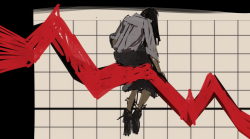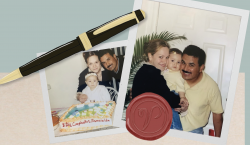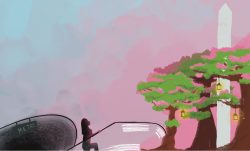After visiting India and Senegal this past year, the question I got most often was, “What was it like? Was it hard seeing such abject poverty?” My response was usually relatively nebulous. But I want someone to ask me that question one more time.
Except this time, I want them to ask me what it is like as an American to see my own family and their city of New Orleans one year after Hurricane Katrina.
This is not meant to be another diatribe about the government’s sluggish response to the disaster. Nor is it meant to dwell the negativity which now surrounds a place that was once the thriving and colorful city ‘down South’ with so much life and history crowding its wide streets.
Yet, I have a hard time drifting away from the reality of the situation. I am amazed at my family’s ability to have packed up and moved to Houston, Chicago and Miami, only to come back less than a year later to their still-damaged homes. I was overwhelmed at my 13-year-old cousin Lily’s flawless Hebrew as she chanted Torah this past weekend. Despite lacking formal schooling for over a year, she still managed to smile though only a small group of her friends were able to join her for her special day.
Lily’s older sister, Rebecca, informed me that she wants to drive me to Lakeview and the Ninth Ward for what she terms “the disaster tour.” “We need people to see it. We need you to see it. We want you to go back home and tell your friends what you’ve seen,” she says.
Rebecca me uptown and as I glance down each street I see every other lawn hosting a white RV trailer, as if the whole community is having a camp-out. These trailers are what the government provided. Though they’re too small for most families, they are functional enough to support a kitchen.
The area where my cousins live does not come close to preparing me for what the lower Ninth Ward still looks like over a year since the storm. As we drive across the bridge, rain starts to pour. Rebecca sighs, “Fitting, huh? One of my friends can’t even stand the rain anymore. She’ll start freaking out once it starts.”
There is no electricity in the streets. The gas station is stripped bare. Less than one percent of the population, my cousins inform me, has moved back into the area. There is hardly any sign of life. A roof lies on the ground, with white paint spelling out “HELP” in large letters. The only street marker I see reads “Audry Lane” with a red sign above it proclaiming: “As Not Seen on T.V.” Orange and Red “X’s” are marked on sides of slanted homes, with the red apparently alerting the authorities to look inside for the deceased.
No one, especially myself, expected this to be a quick recovery. I did expect, however, to see more life, more work, perhaps. All I sensed was emptiness. I thought of all the other families that had been in New Orleans for generations who have been displaced to other parts of the United States. My younger cousins are being home-schooled and Rebecca has taken a gap year before she attends Brown University next year, to become an EMT training to help deal with the huge health care crisis throughout the city.
Life certainly does go on. My own cousins are a phenomenal testament, raising Lily high in the air, as they sing and dance “Siman Tov u Mazeltov” (‘may good luck come to us’) and “Hava Nagila (‘come let us be glad’) around her. But I cannot be comfortable and complacent with the fact that there is a part of our country that remains so devastated. I prepared myself for such sights when I went abroad. I did not prepare myself for it when I came back home.




